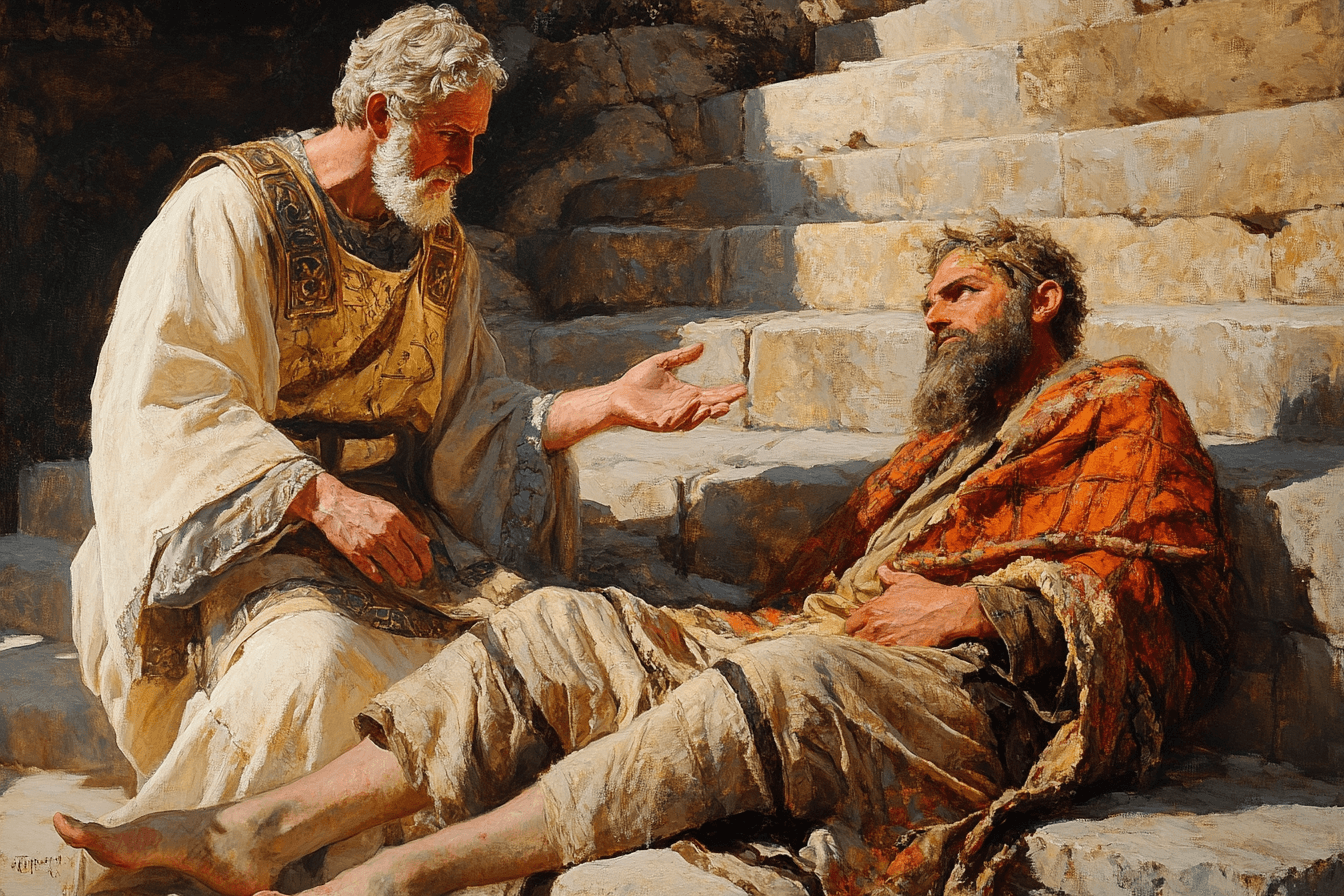
David and Mephibosheth
Years had passed since David had become king of Israel, and his rule was marked by the justice and mercy that had guided him since his youth. Though he was now a powerful king, David had not forgotten his dear friend Jonathan, son of Saul, Israel’s former king. Jonathan had been more than a friend; he was a brother in spirit, standing by David’s side despite his father’s bitter jealousy and attempts to kill David. Jonathan’s loyalty and courage had saved David’s life on more than one occasion, and even after Jonathan’s death in battle, David’s heart held a sacred promise he had made to him—to show kindness to his family, no matter the cost.
One day, moved by this memory, David asked aloud in his palace, “Is there anyone left in the house of Saul to whom I can show kindness for Jonathan’s sake?” His words surprised those around him, for the custom was for kings to eliminate the families of their rivals, securing the throne. But David, ever faithful to his promises, chose a different path.
He called for Ziba, a servant who had once belonged to Saul’s household, and asked him, “Is there anyone left from Saul’s family whom I can show God’s kindness?”
Ziba replied, “There is still a son of Jonathan. His name is Mephibosheth, and he lives in Lo Debar. However, my lord, he is crippled in both feet.”
Without hesitation, David ordered for Mephibosheth to be brought to Jerusalem. Word of this summons must have struck fear into Mephibosheth’s heart, for he was the grandson of Saul, and he knew well that his life was at the mercy of the king. As he arrived, he bowed low, trembling before David, fearing for his life.
But David looked upon Mephibosheth not with anger or judgment but with the kindness and mercy that had shaped his reign. He spoke gently, “Do not be afraid. I will surely show you kindness for the sake of your father Jonathan. I will restore to you all the land that belonged to your grandfather Saul, and you will always eat at my table.”
Mephibosheth, overwhelmed by this unexpected mercy, looked up in amazement. “What is your servant,” he asked, “that you should show kindness to a dead dog like me?” He, who had lived far from the palace, had never expected such kindness, let alone from the king himself.
From that day on, Mephibosheth dined regularly at King David’s table, as if he were one of David’s own sons. David restored all the land that had belonged to Saul’s family to Mephibosheth, keeping his promise to Jonathan with unwavering faithfulness.
In honoring Mephibosheth, David showed that true kindness transcends custom, and that a promise made in friendship is one that endures. David’s loyalty to Jonathan created a bond that defied time and death, a testament to the power of mercy and the sacred nature of friendship.
Mercy is more than kindness; it is compassion shown when judgment is expected. David’s mercy to Mephibosheth shows that true strength lies not in power, but in choosing compassion over custom and kindness over revenge.